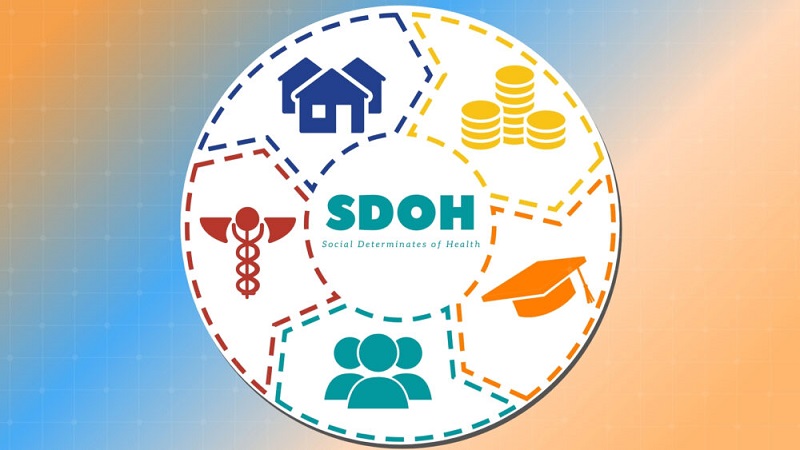What Are the Social Determinants of Health?

In today’s fast-paced world, it’s crucial to recognize that health isn’t solely determined by genetics or access to medical care. Social determinants of health play a significant role in shaping an individual’s overall well-being. Let’s delve into what these determinants are and how they impact our lives.
Income and Socioeconomic Status
One of the most influential factors in determining health outcomes is income and socioeconomic status. Research consistently shows that individuals with higher incomes tend to have better access to healthcare, nutritious food, and safe living environments. This enables them to lead healthier lives compared to those facing financial hardships.
Education and Literacy
Education equips individuals with the knowledge and skills to make informed decisions about their health. It empowers them to understand preventive measures, manage chronic conditions, and access healthcare resources effectively. Limited education and literacy levels can lead to a lack of awareness about health-related issues, potentially resulting in adverse outcomes.
Housing and Neighborhood Conditions
Safe, stable, and affordable housing is fundamental to good health. Living in an environment free from hazards and pollutants is essential for physical well-being. Additionally, access to parks, recreational facilities, and community resources promotes an active lifestyle and mental well-being.
Social Support Networks
Human beings are inherently social creatures, and having strong social support networks positively impacts mental and emotional health. Meaningful relationships with family, friends, and communities provide a sense of belonging, reduce stress, and foster resilience in times of adversity.
Access to Healthcare Services
While social determinants lay the groundwork for health, access to quality healthcare services is crucial for timely diagnosis, treatment, and preventive care. Disparities in healthcare access, often linked to socioeconomic factors, can lead to unequal health outcomes among different populations.
Employment Opportunities and Working Conditions
Employment not only provides financial stability but also contributes to a sense of purpose and self-worth. Fair wages, safe working conditions, and opportunities for career advancement are essential for maintaining overall well-being.
Environmental Factors
The physical environment, including air and water quality, plays a significant role in health outcomes. Exposure to pollutants, toxins, and other environmental hazards can have detrimental effects on respiratory and cardiovascular health.
Cultural and Social Norms
Cultural practices and societal norms influence health behaviors and attitudes toward seeking healthcare. Understanding and respecting diverse cultural perspectives is crucial for providing inclusive and effective healthcare services.
Government Policies and Systems
Policies related to healthcare, education, housing, and social welfare have a profound impact on population health. Advocacy for equitable policies is essential for addressing disparities and promoting better health outcomes for all.
FAQs
Q: How do social determinants of health affect vulnerable populations?
Social determinants of health disproportionately impact vulnerable populations, such as low-income individuals, racial and ethnic minorities, and those living in underserved communities. Limited access to resources and systemic inequalities exacerbate health disparities among these groups.
Q: Can individual behaviors override the influence of social determinants?
While individual behaviors certainly play a role in health, they are influenced by social determinants. For example, someone with limited access to nutritious food may struggle to maintain a healthy diet. Recognizing and addressing social determinants is crucial for enabling individuals to make positive health choices.
Q: Are there efforts to address social determinants of health at a policy level?
Yes, there are ongoing efforts to address social determinants of health through policy initiatives. These may include programs aimed at reducing income inequality, improving access to education, and creating affordable housing options. Advocacy and policy changes are vital steps toward achieving health equity.
Q: How can healthcare providers incorporate social determinants into patient care?
Healthcare providers can screen for social determinants of health during patient assessments and refer individuals to appropriate resources. Collaborating with social workers, community organizations, and support services can help address underlying social factors that impact health.
Q: What role do community-based organizations play in addressing social determinants?
Community-based organizations play a crucial role in addressing social determinants of health. They provide vital services such as housing assistance, food programs, job training, and educational resources. By working in tandem with healthcare providers, these organizations contribute to holistic approaches to well-being.
Conclusion
Understanding the social determinants of health is key to creating a healthier, more equitable society. By recognizing the multifaceted factors that influence well-being, we can work towards implementing policies and practices that uplift individuals and communities, ultimately leading to improved health outcomes for all.





